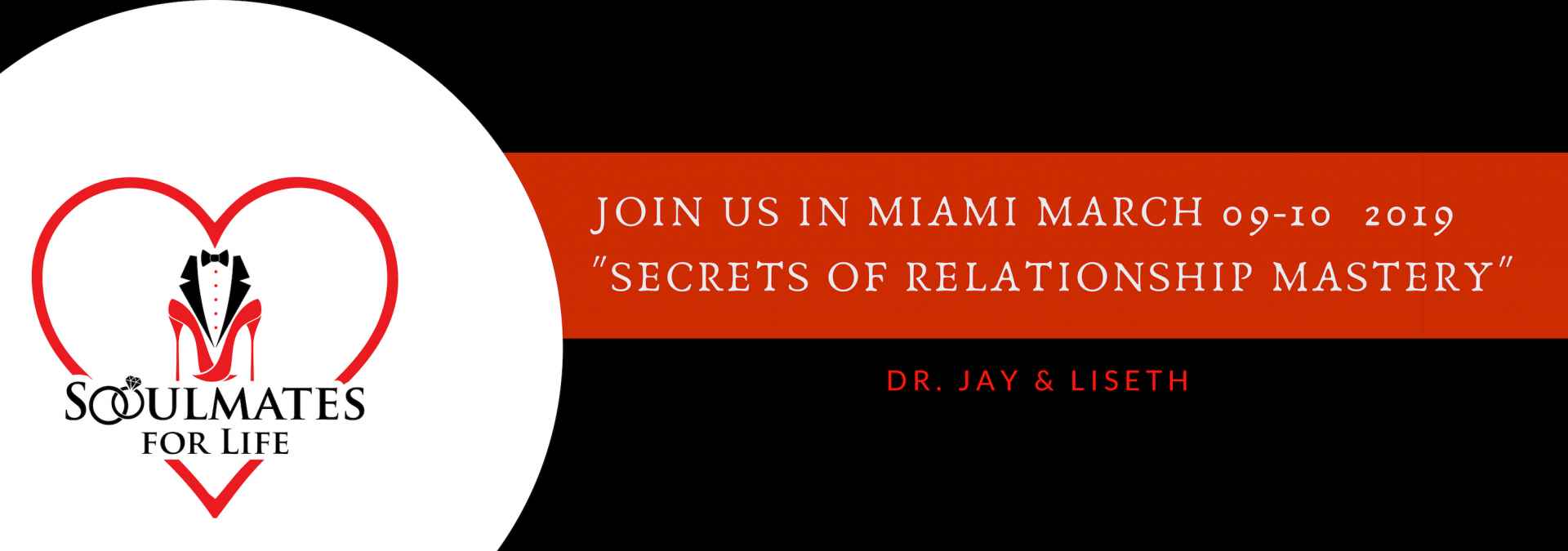Smart Erotica: The 7 Conversations of LIC #2: Unfiltered Communication


In our article Smart Erotica: The Modern Couple's Playbook we outlined seven conversations that our Lifestyle Inventory Check-up (LIC)© coaches couples to have to ensure a fun and productive erotic lifestyle experience.
The LIC guides you through a series of essential discussions that include the following:
- Alignment
- Unfiltered Communication (you're here)
- Conflict
- Sexuality vs. Eroticism
- Boundaries
- Agreements
- Routines & Rituals
Regardless of where you are on the erotic lifestyle continuum — from newbie to veteran, hot monogamy to CNM or even polyamory — the LIC and its “7 conversations” are essential tools that keep your relationship safe and lay the foundation for romantic pluralism that is quickly going mainstream in our culture with just over 20% or 1 in 5 people participating in a “consensual non-monogamous relationship” (Kinsey Institute and Journal of Sex and Marital Therapy, 2016).
“The only dangerous conversations are missing ones.
Don’t fear the conversations you need to have;
be frightened of the ones you avoid because of how costly they are”
– Dr. Jay and Liseth, SoulMatesforlife.us
The most reliable measure of the health of any relationship — particularly those in the erotic lifestyle — is the quality of the communication in it. And, the quality of our relationships determines the quality of our lives.
Simple, right? Read on!
The Unique Emotional Terrain of the Erotic Lifestyle
We want to introduce you to a couple we work with: Erica and Blake. They recently attended our relationship program, Soul-Mates for Life: Secrets of Relationship Mastery, and are actively rebuilding their relationship after a “bad” lifestyle experience. They are in our private coaching program committed to rebuilding from a separation and likely divorce because of the damage done during the “bad” experience. Both in their mid-forties, she an accomplished attorney in private practice, he a serial entrepreneur with several successful businesses that he is now trying to sell. It is a second marriage for both of them, they’ve been married for 12 years, and they have two sons, Jason and Josh, who are eight and ten. Early in their marriage if either was attracted to someone the unwritten but followed rule was an expectation to deny the feeling, pretend they’re not turned on, and do a bad job lying about it “out of respect” for their partner. Feeding such lustful thoughts was tantamount to a cardinal sin and fantasies involving others were supposed to die after the recitation of the wedding vow of “till death do us part.”
Their complaints are ones we hear a lot from couples these days: “By the end of long days at work, taking care of the boy’s needs, taking them to practice and after school stuff, and running to check off the To-Do list, ‘sex is the last thing I think about (Erica)’ and ‘I’m tired of groveling by begging for it (Blake).’ ‘I want to be appreciated as a woman, not just a companion and mom (Erica)’ and ‘I want to feel desired and respected, not just the guy who funds the retirement accounts.’ We discovered the lifestyle two years ago and went to a local swingers club which we both liked. Our first year was ‘soft’ only and went pretty well … however, we never talked much about it and just let it unfold naturally – ‘some things can’t be planned,’ we thought. I (Blake) wanted to explore some fantasies but was afraid to tell Erica because of how she reacted in the past. I (Erica) was really uncomfortable and felt pressured to do things I didn’t want but didn’t want to sound like a bitch about it. We met a very attractive couple, and Blake went for it with her (Cuckold fantasy), and the three of them had fun while I simmered in silence — he called it ‘taking one for the team.’ Then, to add insult to injury, they met outside the club several times without me and because we were ‘in the lifestyle’ everyone assumed it was OK when it wasn’t. I (Erica) was devastated and lost all trust in Blake, and the battle was on leading to a prolonged separation.”
This is the exact reason we designed the Lifestyle Inventory Check-Up® (LIC). Too many couples are not managing the “nuclear reactor” of the erotic lifestyle well and putting their relationships at real risk because they don’t know how to communicate effectively about the issues in play. Some don’t even know what the issues are until they slap them in the face!
Consider, for a moment, the mind-numbing questions lifestyle couples have to contend with:
- Is there a difference between love, sex, and desire? If so, how do we distinguish between them in our relationship?
- When do you feel most free in your relationship? How does being married make you more/less free and how do we manage the tension between them?
- Is emotional commitment always bound to sexual exclusivity? Can we love and/or be turned on by more than one person at the same time?
- Is sex ever ‘just sex’? What happens when lust turns into desire and wants more than just sex?
- What’s the difference between ‘emotional monogamy’ and ‘consensual non-monogamy?’
The emotional terrain of all intimate relationships is complex. The unique emotional terrain of those couples who venture into the erotic lifestyle is both complex and uncharted, and the alchemy between the unknown and the ever-changing can tank a great relationship unless you are prepared to navigate with the right compass and tools to guide you. This is exactly what the Lifestyle Inventory Check-Up® (LIC) will provide you with.
Now, back to Unfiltered Communication.
Talking is the Most Dangerous Activity You Do as a Couple… Really!
Words are unique. They have the power to heal a wound or pierce a heart. In a moment, trust can be destroyed, or it can be strengthened often not by what is said but, rather, how it is spoken, and the words used to express it. A single word accompanied by tone or tenor can literally breathe life into your partner’s soul, or cut them like a surgical knife where they slowly bleed out only to be realized by the proverbial 2x4 in the head of marital problems, boredom, chronic conflicts, and the existential malaise of “soul death” where a relationship’s emotional pulse weakens to anemic levels.
Why is this true?
There are two reasons talking can be “dangerous” to your relationship. We see this in our work with couples every day, where we sift through the emotional debris and triumphs of the masters and disasters of relationships. These are all good people with the best of intentions, both using the same tool — language — and garnering drastically different results contingent upon how that tool is used.
#1: People Know How to TALK; They Don’t Know How to Communicate
For us, communication is both art and science, and the failure to understand the difference can be fatal to a relationship. Mastering anything has requirements. You don’t sign up for a triathlon and work out once a week. You train intensely the muscles you will need to condition yourself for peak performance to master the challenging road ahead. Marriage is a triathlon of sorts, and most of us are simply ill-prepared for its rigors, let alone commit the time to learn how to master the challenges contained within it. It’s crazy to us when we sift through the debris of relationship disasters; it’s like going to war with a paintball gun!
People know how to talk (e.g. defend a position, get things off their chest, yell over people, talk about and around things, defend their point of view, and advocate for a position); they don’t know how to communicate (e.g., connect, suspend judgment, resist criticism, attack-defend, hear, then listen to the core issues, understand, bring compassion and empathy to the exchange, and manage triggers and reactivity).
We believe this single distinction — and the failure to know how to communicate as we teach couples to do — is responsible for more than half of all marriages failing globally.
#2: The Most Dangerous Conversation is a “MISSING” Conversation
A Missing Conversation is a disconnect between people where a conversation that needs to happen is missing. Human beings are unique in that what is not felt or spoken is never finished, therefore remains “incomplete,” yet it continues to influence behavior despite our conviction that it’s “over” or in the “past” and doesn’t. This is especially costly in the erotic lifestyle, given what’s at stake. Strangely, for many of us, sex is scary to talk about. Never fear the conversations that you need to have; be frightened by those you avoid or choose not to have because of the toxicity that fills the space between a breakdown or upset and its avoidance — energy drains, distractions, and lots of drama, to be exact!
Many of us take the path of least resistance when it comes to communicating with our partners. Anchored in myths like “Don’t rock the boat” or “If there’s not a problem don’t create one” are the excuses used for the hardcore avoiders out there. Fear or, more accurately, the mismanagement of fear, is often hidden behind as the reason to not be candid and speak the truth, thus setting the stage for problems for which Blake and Erica sought our help.
LIC Dialogue #2: Unfiltered Communication
At Soul-Mates for Life, we have logged thousands of hours in the trenches with couples seeking solutions for how to solve challenges and enrich their lives together. We’ve discovered that there is a “design” to both success and failure and that success always leaves clues. Once you know them, you can create a relationship of your choosing.
The first task in dealing with Unfiltered Communication is to create a safe environment in the emotional space between you so you can take the necessary risks to be intimate. If you or your partner do not feel completely safe in speaking the truth about anything, you have missing/incomplete or “filtered” conversations happening in your relationship, and that is always a red flag for future problems.
Let’s solve that right now, hey?
4 Strategies to Communicate about “Anything”
OK… How can you make your relationship “safe” so that anything can be spoken about with each other? What are the requirements for designing an emotional culture where each of you can risk being vulnerable and open to share what’s really present for you?
The “state” you bring to the relationship will determine how safe it is. It’s ALL in how you show up! The following four (4) strategies begin with raising your standards for HOW you SPEAK and HOW you LISTEN.
Then, we will coach you on the specific conversations to have to breakthrough into Unfiltered Communication. The outcome of applying these strategies is increased trust that generates the emotional safety required to communicate about “anything” you need to with your partner.
- TRANSPARENCY: Transparency is giving your partner access to what is important for them to know about you without the defensive armor that asks them to go on an archeological dig to find it. It’s saying “what is” and acting from a commitment to truth-telling and candor by being open and willing to disclose things you may be tempted to hide or not disclose because it makes YOU uncomfortable. A commitment to Transparency allows you to practice Unfiltered Communication.
- VULNERABILITY: To be vulnerable is to have the courage to be fully known to another by showing up “as you are,” not how you want others to perceive you to be. It asks us to give up control over the outcome because control is an illusion and we cannot determine how people will judge or evaluate us when we risk being known to them. That is why the choice to be Vulnerable is so courageous and necessary for Unfiltered Communication.
- SELF-EXPRESSION: To be fully self-expressed is to respect your partner enough that you do not cut corners, allow strategic omissions of uncomfortable details you’d rather not talk about, lead and initiate the conversation needing to happen and choose to be proactive when the temptation to “filter” the conversation happens. A commitment to Self-Expression prevents Missing Conversations and supports you to practice Unfiltered Communication.
- COMPASSION: The act of Compassion is to assume “good intent” in your partner and extend grace in the form of respect, curiosity about their experience, and not judging or making them wrong for anything you might hear as you drill into the conversations you will have using the LIC assessment. To be Compassionate is to suspend judgment and influence on your position until understanding your partner is achieved first.
Remember: A “strategy” is not a cure-all but, rather, a tool that empowers you to bring a novel mindset, emotional state, and behavioral repertoire to the task at hand, thus raising the odds that it goes better. When applied to your relationship’s communication, these four (4) strategies are game changers to set the conditions for the conversations you will have in Dialogue #2: Unfiltered Communication, next.
Questions to Ask Yourself, First
- Where are you on the “erotic continuum?” (Hot Monogamy – e.g., watch porn together, go to a strip club, attend a lifestyle event and watch; Soft Swap, Full Swap, MFM, FMF, KINK, BDSM, Polyamory) and do you feel comfortable bringing your desires, interests, needs, and fantasies forward and reveal them to your partner? If not, why not?
- What, if any, Missing and/or Incomplete Conversations are you allowing to exist right now? Why, and what can change that for you?
- What are you currently not being transparent about with your partner?
- Where do you struggle to be vulnerable with your partner, and what do you need to risk more vulnerability?
- How is your self-expression limited or hampered in your relationship and what could change that?
When and where do you lack compassion for your partner by being judgmental, critical, not listening deeply, or being unreceptive to influence by them?
Questions to Ask and Answer to Each Other
- What kind of erotic lifestyle experiences, situations, or relationships are we looking for and open to? Are they aligned with what we talked about in Conversation #1: Alignment — our why and our purpose?
- If we are avoiding a conversation, what would it be and why are we avoiding it? What would support us to feel safe and have that conversation?
- What do we consider essential, indispensable elements of an erotic lifestyle relationship, and what values are most important to us in exploring the erotic lifestyle together?
- What makes me/you afraid in our relationship as we explore or expand our involvement in the erotic lifestyle?
- What needs does each of us have in terms of time, emotional availability, commitment, communication, and intimacy that are important to honor as we participate in the erotic lifestyle?
We've Had Unfiltered Communication! Now What?
If you completed the above process, you just displayed enormous courage and made an important investment in your relationship! A decision to have the Missing or Incomplete Conversation ensures you will never have Filtered Communication in your relationship, and if you do, you will see it and do something about it. Filtered Communication is dangerous and undermines all the learning and connection that can be yours as you ethically and responsibility navigate the erotic lifestyle.
The Smart Erotica Program© is a practical, common sense approach that systematically coaches participants through the “7 Conversations” of the Lifestyle Inventory Check-Up® (LIC), in the safety of a structured, confidential, professional methodology based on decades of relationship science and work with couples globally.
The program delivers an emotional and mental framework for being in the “right” conversations about the “right” issues in the “right” way to successfully navigate the delicate balance between love, sex, eroticism and sensual expression grounded in a relationship design of your choosing.
Live passionately,
Dr. Jay and Liseth
Soul-Mates for Life








